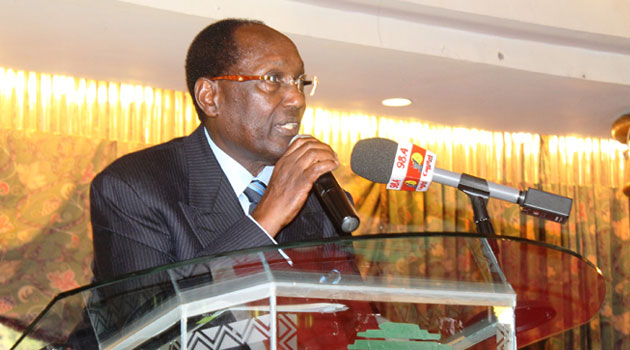“They are the model of the colonial era, the Cargills of this world. They buy grain, they trade it online, but they never say, ‘What is the minimum return a farmer should get to encourage him to continue farming and to continue to exist for the next crop for me to buy?’ It is like selling milk but not caring where the cow lives and eats. Sooner or later, there will be no milk to sell.
“Agriculture in Africa is a paradox. The very poor maintain and feed the well-off. The people in the middle make all the money.”
Farmers need protection by governments like they receive in Europe. “Kenya is hardly producing half the coffee it has done in the past,” he says. “In my farm, in the past 10 years I only made money in one year. So I’m now at a crossroads: do I continue farming coffee or do I use my land for other things? I cannot continue to subsidise the rich coffee drinkers. I have first-class coffee, but I would rather not be part of that chain.”
Think of Nigeria’s economic resources, and you think “oil”.
For decades, the country’s Delta region has been the fuel that has powered the country’s economy, with all the benefits and pitfalls that entails.
For so long synonymous with corruption, the country’s oil reserves have been squandered for years, with what is known in the accountancy world as “leakage” happening both on a literal level – with disastrous pollution – and metaphorically, in terms of graft.
Just before last year’s Africa CEO Forum, the central bank governor claimed up to $20bn of oil money had disappeared between January 2012 and July 2013, meaning the country’s foreign reserves were under huge pressure. The governor, Lamido Sanusi, was promptly sacked for his troubles.
After consistent complaints that Nigeria should have been doing more to save its oil windfalls for future generations, in 2011 the country decreed that it should form a sovereign wealth fund to invest the money it makes from the black gold into other assets around the world.
The fund has started small, with only $1.5bn (Norway’s, the world’s biggest, has $863bn). But the man charged with investing the Nigerian pot, Uche Orji, makes no apologies.
Formerly at UBS in New York and JP Morgan and Goldman Sachs in London, Mr Orji is every inch the internationally experienced banker, right down to his family home in Knightsbridge.
“Many sovereign wealth funds started off small,” he says. “It is not how you start but how committed you are and how long the fund lasts that really matters.”
Nor does he have much truck with the criticism that Nigeria came a decade too late with the launch of its fund. The oil price is now half its levels a year ago, with little immediate sign of a rebound, while Nigeria’s output has long since peaked.



































